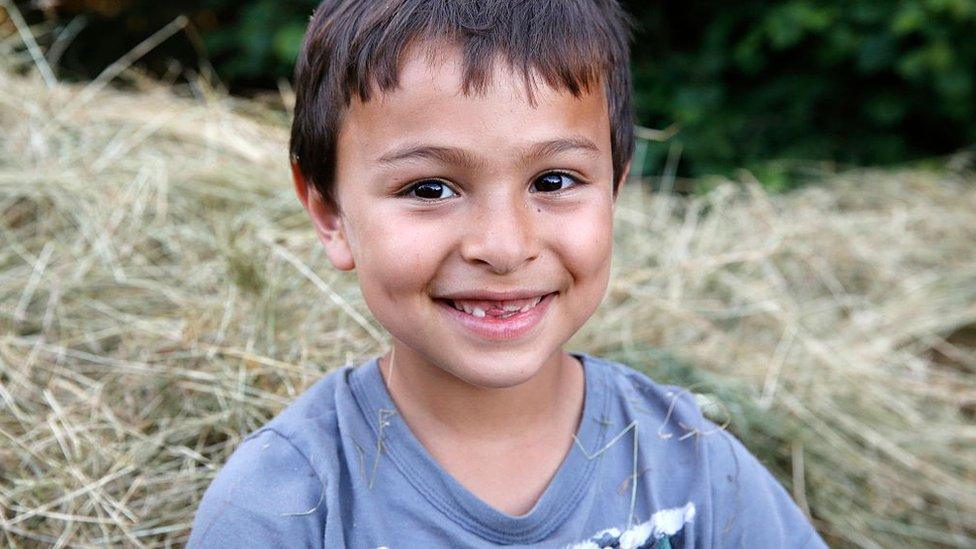'Sharenting' puts young at risk of online fraud
- Published
- comments

"Sharenting" - where parents share personal information about their children on social media - is the "weakest link" in risking online fraud and identity theft, warns Barclays.
The bank says parents are compromising their children's future financial security with so much online sharing.
Barclays forecasts by 2030 it could cost almost £670m in online fraud.
The bank's security specialists say social media means identity fraud has "never been easier".
Barclays is warning that parents might be "lulled into a false sense of security" and fail to realise they are making their children "fraud targets" in the future, by publishing so much personal information which will remain online.
Identity fraud
Parents are being told that information on social media is vulnerable to being misused to hack passwords or for identity fraud scams.
The bank says parents can reveal names, ages and dates of births from birthday messages, home addresses, place of birth, mother's maiden name, schools, the names of pets, sports teams they support and photographs.
Barclays warns that such details, which will still be available when young people are adults, could be used for fraudulent loans or credit card transactions or online shopping scams.
The bank is forecasting that "sharenting" will account for two-thirds of identity fraud facing young people by the end of the next decade and will cost £667m per year.
"Another decade of parents over-sharing personal information online" will produce 7.4 million incidents per year of identity fraud by 2030, says Barclays.
The bank is urging parents to check their online privacy settings and to make sure that they know what information is being made available about their children.
"Through social media, it has never been easier for fraudsters to gather the key pieces of information required to steal someone's identity," said Jodie Gilbert, head of digital safety for Barclays.
"It is vital to think before you post, and to carry out regular audits of your social media accounts to prevent that information from falling into the wrong hands," she said.
- Published3 August 2017

- Published3 November 2016
